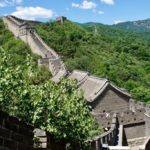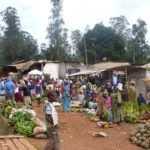Just had an incredibly intense conversation online with a friend, on the topic of injustice, human rights, and the poor. My mind is still buzzing with thoughts; throat began hurting this evening, I sincerely hope I am not getting sick. That would be the end of my life (not literally).
To get my head around what exactly I was debating, I looked up the following term on the Oxford dictionary.
Injustice: lack of fairness or justice
Human Right: a right that is believe to belong justifiably to every person
Poor: lacking sufficient money to live at a standard considered comfortable or normal in society.
Say friend is an intellect with great love for knowledge and ideas, the sharing of knowledge and ideas, and logical debate. I wouldn’t dare say that I am an intellectual. I enjoy learning, but my ability to retain knowledge isn’t the best. I have had formal training in some form of logical thinking. I did a great job analyzing tort law through economics today, but I apparently can’t argue logically. Is it that I lack logic, or are there merely difference in ideas? Someone once told me that knowledge and the retaining of knowledge seems “bourgeois”. I can read great books and think of stellar ideas to fix the next grand social problem, but isn’t all the thinking rather futile when there are people suffering right then and now? I am a fan of knowledge and great ideas; otherwise I would not have subjected myself to taking all sorts of unnecessary classes. In preparation for the Peace Corps, I am attempting to find a balance between great knowledge and the people. How do I transform years of education into action, but at the same time integrate rather than obfuscate?
I will likely learn more from the Cameroonians than anything I can instruct. This experience will be a time to make human connections. With each passing day, I am scrapping my brain trying to think of the fall of 1998. What are the dos? And what are the do-nots? Smile. Body language is more or less universal. I say more or less because we all know gestures that are great in one place but faux pas in another. Smile, however, is a universal connector. Some may argue other than Paris, but I’ve smiled my way through many awkward situations in Paris. Listening is another great tool. I won’t be able to speak the language right away, so I’ll listen. I’ll attempt to see the world through their eyes and be amazed. I will be open to share stories of my life: life in Taiwan, life in the U.S., life in London. I will be eager to gain an understanding of their thoughts and perception of Chinese/Taiwanese, Americans, and the English. This leads to the do-nots.
I do not need to integrate in such a way where I need to forget I ever lived in the U.S. That is a fatal mistake I made in round I. Today people often forget that I’ve thus far spent more years of my life on an island of the Far East than I have in the U.S.A. (though in September, that number will be equal) Sharing my past doesn’t make me less of an American, it makes me a different American. I never understood why people cared about my stories until I met foreigners and I was eager to hear their stories.
Many things that I will soon encounter will scream unfair. How do I put those injustices in the context of the societal culture, but also within the world? How many human rights violations will I find in Cameroon? That will be interesting to discover. To what extent can I truly make an impact? Somewhere, I read, “think small, create big.” If I can leave Cameroon at the end of 27 months knowing at least one individual’s life has been changed in a better way because of my presence, then that’s enough. And if at least one person can know the difference between Taiwan and China, and realize I don’t do karate, then that’s also enough.
I am trying to remember what it was like to wash my shoes and clothes over the sink. I’m trying to remember the smell of line-dried clothes in the summer, slightly mildewed from severe humidity. I am remembering what all the fabulously delicious, and what many of you would think is disgusting, food taste like. I am recalling squat toilets from elementary school and grandparents’ houses. I am remembering bucket showers and water storage for those occasional water/electricity outage days. I am remembering spotting cockroaches and geckos running around the apartment. Remember the raw smell of outdoor markets, of chickens running around in a cage, odd parts of a pig on a stand ready for sell, kind farmers sitting on a stool with their fresh veggies (they always toss in some green onion with your purchase). I am remembering my uncle’s pig farm, and the rooster that cluck in the early mornings.
I am remembering, and making insignificant connections between my distant past and near future.







Wow. You have become quite the writer. Looking forward to reading your journals while you are there.
Agreed on all accounts. Didn’t realize the striking similarities between Taiwan and what you will experience in Africa. I guess I’ve just never been to Taiwan and never heard you speak of it in that way before.
I’m in denial that you’re leaving 🙂
I think “making insignificant connections between my distant past and near future” will become a lot more significant when you are posted in Cameroon, and make for a much more acute and fragile existence. The smells of Africa echo very mush those same smells you describe in Taiwan. I was a volunteer in Cameroon from 99-01 in Mamfe. I miss the smells of my village, the way the sky felt after a heavy rain, the densness of the forest. I will be going back to work in Doula in 08 with my wife, to teach. I am anxious with anticipation. Perhaps we will meet one day! Ashia and bon chance!